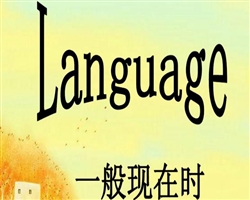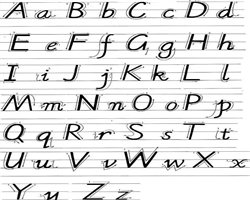Qing Dynasty
清朝
The Westernization Movement
洋务运动
The rude realities of the Opium War, the unequal treaties, and the mid-century mass uprisings caused Qing courtiers and officials to recognize the need to strengthen China.
鸦片战争残酷的现实、不平等条约以及中世纪的大规模起义使清朝政府和官员意识到要让国家强大起来。
Chinese scholars and officials had been examining and translating “Western Learning” since the 1840s.
中国的学者和官员自19世纪40年代起开始检查翻译“洋学”。
Under the direction of modern-thinking Han officials, Western science and languages were studied, special schools were opened in the larger cities, and arsenals, factories, and shipyards were established according to Western models.
在具有现代性思维的汉家学者的引导下,人们学习了西方的科学和语言,一些大城市开设了特殊的学校,军械库、工厂和船坞也参照西方的模型得到了建造。
Western diplomatic practices were adopted by the Qing, and students were sent abroad by the government and on individual or community initiative in the hope that national regeneration could be achieved through the application of Western practical methods.
清朝采纳了西方的外交手段,学生们单独或成团被政府送去海外读书,希望可以通过运用西方的实践方法振兴国家。
Amid these activities came an attempt to arrest the dynastic decline by restoring the traditional order.
这些举措致力于通过重建传统秩序来组织朝代的衰败。
The effort was known as the Tongzhi Restoration, named for the Tongzhi Emperor (1862—1874), and was engineered by the young emperors mother, the Empress Dowager Ci Xi (1835—1908).
这场努力被称为“同治中兴”,它取自同治皇帝(1862——1874)的名讳,并由这位年轻帝王的母亲,慈禧太后(1835——1908)设计指导。
The restoration, however, which applied “practical knowledge”, while reaffirming the old mentality, was not a genuine program of modernization.
然而,这场革新,在运用“实用性知识”的同时却不断重申老的心态,它并不是一个真正的现代化计划。
The effort to graft Western technology onto Chinese institutions became known as the Self-Strengthening Movement.
试图将西方的科技嫁接到中国的制度上的尝试开始自“洋务运动”。
The movement was championed by scholar-generals like Li Hongzhang (1823—1901) and Zuo Zongtang (1812—1885), who had fought with the government forces in the Taiping Rebellion.
这场运动由士大夫们领导,比如李鸿章(1823——1901)和左宗棠(1812——1885),他们曾在太平起义中与政府军作战。
From 1861 to 1894, leaders such as these, now turned scholar-administrators, were responsible for establishing modem institutions, developing basic industries, communications, and transportation, and modernizing the military.
1861到1894年间,现在成为大臣们的这些人负责建立了现代的机构,发展基础工业、通信和交通业并是军队现代化。
But despite its leaders’ accomplishments, the Self-Strengthening Movement did not recognize the significance of the political institutions and social theories that had fostered Western advances and innovations.
尽管其领导者成就累累,洋务运动却没有意识到促进西方进步与改革的政治制度和社会理论。
This weakness led to the movement's failure.
这个忽视导致了运动的失败。
Modernization during this period would have been difficult under the best of circumstances.
现代化进程在这段时期最好的情况下都很困难。
The bureaucracy was still deeply influenced by Neo-Confucian orthodoxy.
官僚机构仍然深受儒家正统思想的影响。
Chinese society was still reeling from the ravages of the Taiping and other rebellions, and foreign encroachments continued to threaten the integrity of China.
中国社会仍然受到太平军和其他起义的破坏,西方的侵略继续威胁着中国的统一和完整。
The first step in the foreign powers' effort to carve up the empire was taken by Russia, which had been expanding into Central Asia.
西方列强中第一个尝试瓜分中国的是俄国,当时它已经扩张到了中亚地区。
By the 1850s, tsarist troops also had invaded the Heilong Jiang watershed of Manchuria, from which their countrymen had been ejected under the Treaty of Nerchinsk.
到19世纪50年代,沙皇的部队也向满洲国的黑龙江流域进攻,原本居住在那里的人们受到了《尼布楚条约》的驱逐。
The Russians used the superior knowledge of China they had acquired through their century-long residence in Beijing to further their aggrandizement.
俄国人通过他们居住在北京几个世纪以来获得的有关中国的大量知识来加大扩张。
In 1860 Russian diplomats secured the secession of all of Manchuria north of the Heilong Jiang and east of the Wusuli Jiang (Ussuri River).
1860年,俄国外交官将黑龙江北部及乌苏里江东部从满洲国分裂出来。
Foreign encroachments increased after 1860 by means of a series of treaties imposed on China on one pretext or another.
1860年之后,通过条约,一个又一个施加在中国身上的理由加速了西方的入侵。
The foreign stranglehold on the vital sectors of the Chinese economy was reinforced through a lengthening list of concessions.
西方对于中国重要经济部门的控制由于国家不断的让步而加强。
Foreign settlements in the treaty ports became extraterritorial sovereign pockets of territories over which China had no jurisdiction.
他们在中国通商口岸的驻扎使之成为了西方的境外领土,中国对这些区域却失去了管辖权。
The safety of these foreign settlements was ensured by the menacing presence of warships and gunboats.
他们具有威慑力的军舰和炮艇保障了这些外国人定居点的安全。
At this time the foreign powers also took over the peripheral states that had acknowledged Chinese suzerainty and given tribute to the emperor.
这个时期,外国列强还控制了中国周边的国家,这些国家曾承认中国使它们的宗主国并向清朝皇帝进贡。
France colonized Cochin China, as southern Vietnam was then called, and by 1864 established a protectorate over Cambodia. Following a victorious war against China in 1884—1885, France also took Annam.
法国殖民了交趾支那,也就是后来的越南,并在1864年使柬埔寨成为了受保护国。
Britain gained control over Burma.
在1884到1885年间战胜中国后,法国又占领了安南。
Russia penetrated into Chinese Turkestan (the modern-day Xinjiang-Uyghur Autonomous Region).
英国获得了缅甸的控制权。
Japan, having emerged from its century-and-a-half-long seclusion and having gone through its own modernization movement, defeated China in the war of 1894—1895.
俄国攻入了中国的突厥斯坦(今天的新疆维吾尔自治区)。
The Treaty of Shimonoseki forced China to cede Taiwan and the Penghu Islands to Japan, pay a huge indemnity, permit the establishment of Japanese industries in four treaty ports, and recognize Japanese hegemony over Korea.
日本从其长达一个半世纪之久的隐退中兴起,在经历了自己的现代化运动后,于1894到1895年间与中国的战争中胜利。
In 1898 the British acquired a ninety-nine-year lease over the so-called Territories of Kowloon (or Jiulong in pinyin), which increased the size of their Hong Kong colony.
《马关条约》迫使中国将台湾和澎湖列岛割让给日本,支付巨额赔偿,允许日本在四个通常口岸建立工厂,并将对韩国的领导权交给日本。
Britain, Japan, Russia, Germany, France, and Belgium each gained spheres of influence in China.
1898年,英国获得了对九龙地区99年的租期,这扩大了他们香港殖民地的版图。
The United States, which had not acquired any territorial cessions, proposed in 1899 that there be an “open door” policy in China, whereby all foreign countries would have equal duties and privileges in all treaty ports within and outside the various spheres of influence.
英国、日本、俄国、德国、法国和比利时分别在中国划定了自己的势力范围。
All but Russia agreed to the United States overture.
美国,由于没有获得任何领土割让,于1899年宣布在中国实行“门户开放”政策,通过这些政策,所有外国列强都在他们势力范围内外的通商口岸获得了平等的义务和特权。
所有国家除俄国外都同意了美国的提议。





 。
。